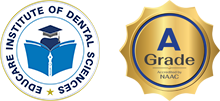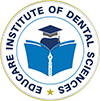In the realm of dental health, the significance of maintaining optimal oral hygiene cannot be overstated. Beyond the usual suspects like cavities and gum disease, there lies a lesser-known yet critical concern: the potential connection between sharp or broken teeth and oral cancer. This article delves into this correlation, shedding light on the risks and implications for dental health.
Understanding the Link
Research suggests that sharp or broken teeth may contribute to approximately 5% of oral cancer cases. While this percentage might seem small, the implications are significant, particularly considering the potentially severe consequences of oral cancer.
The common sites for oral cancer development include the tongue and inner lining of the cheeks. These areas are particularly susceptible to damage from sharp or broken teeth due to their proximity to the oral cavity.
The Role of Mucosal Trauma
Sharp or broken teeth can lead to mucosal trauma, a condition characterized by damage or irritation to the soft tissues lining the oral cavity. When these tissues experience repeated trauma or irritation, it can pave the way for the development of oral cancer over time.
Mucosal trauma caused by sharp or broken teeth creates a conducive environment for the initiation and progression of cancerous changes within the affected tissues. The constant friction and irritation from the jagged edges of a broken tooth, for example, can gradually compromise the integrity of the mucosal lining, making it more susceptible to malignant transformation.
Prevention and Early Intervention
Given the potential risks associated with sharp or broken teeth, proactive measures are essential to mitigate the likelihood of oral cancer development. Here are some strategies to consider:
- Regular Dental Check-ups: Routine dental examinations allow for the early detection of sharp or broken teeth, enabling prompt intervention to prevent further damage.
- Prompt Treatment of Dental Issues: Addressing dental problems such as cavities, fractures, or misalignment promptly can help prevent the development of sharp or broken teeth.
- Maintaining Good Oral Hygiene: Practicing proper oral hygiene, including regular brushing, flossing, and using antimicrobial mouthwash, can help reduce the risk of dental issues that may lead to sharp or broken teeth.
- Avoiding Harmful Habits: Refraining from habits like chewing on hard objects, using teeth as tools, or engaging in tobacco use can minimize the risk of dental trauma and subsequent oral cancer.
- Seeking Professional Care: If you notice sharp or broken teeth or experience any discomfort or irritation in your oral cavity, seek prompt evaluation and treatment from a dental professional.
oral cancer prevention
The relationship between sharp or broken teeth and oral cancer underscores the importance of proactive dental care and preventive measures. By addressing dental issues promptly and maintaining optimal oral hygiene practices, individuals can minimize their risk of experiencing mucosal trauma and its potential consequences. Regular dental check-ups and professional interventions play a crucial role in safeguarding oral health and reducing the likelihood of oral cancer development. As advocates for our own well-being, it is imperative to prioritize oral health and take proactive steps to preserve the integrity of our smiles for years to come.

